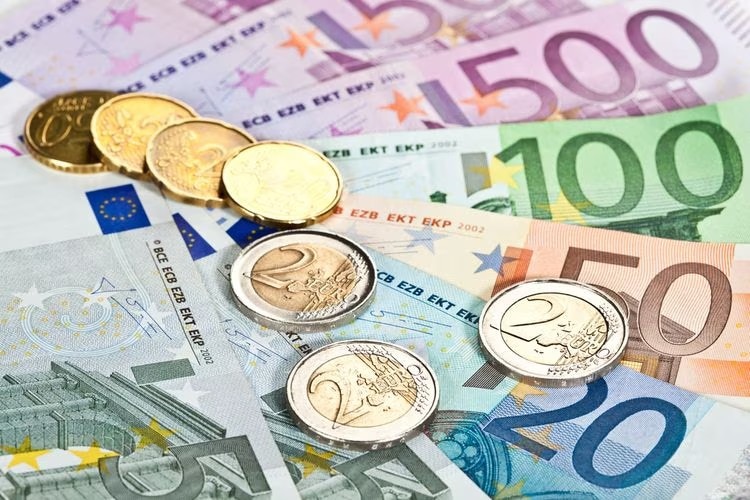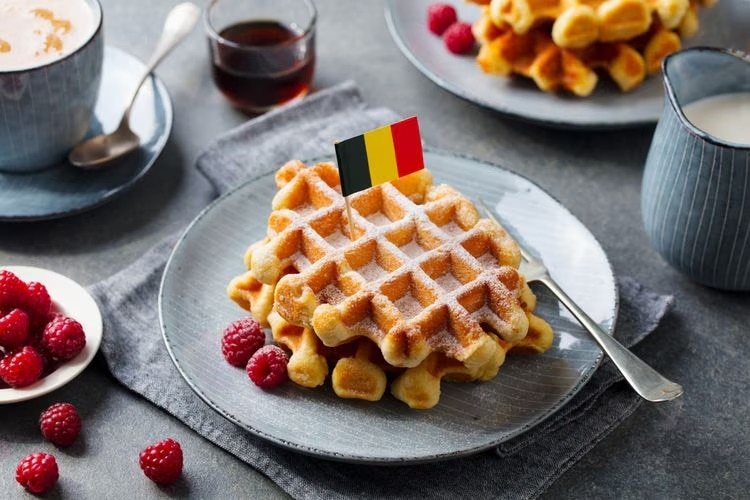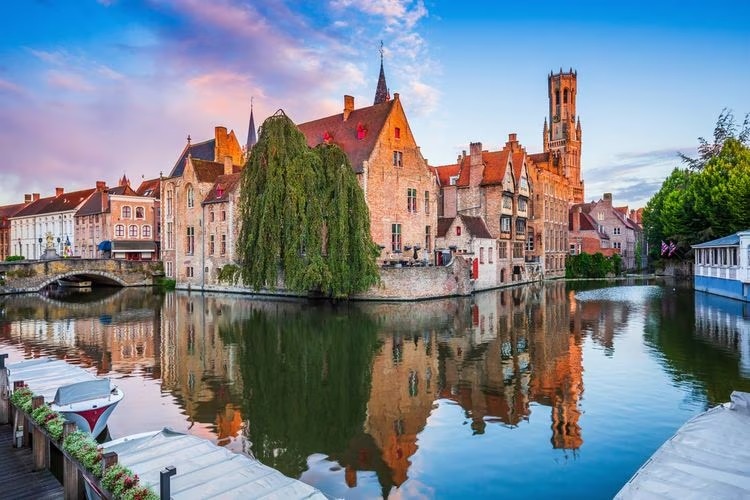Belgium Travel Tips and Information
Official Name
Kingdom of Belgium
Capital
Brussels
Population
Country Code
Approximately 11.2 million
BE
Country Code (international calls)
+32
The flight time to Belgium is approximately 10~11 hours. Check the climate, currency, religion, manners, other information of Belgium below. Wishing you pleasant travels to Belgium.
Located between Germany and France, Belgium is also known as part of the "Benelux" region, along with neighboring Netherlands and Luxembourg.
Local Climate / Weather
Belgium’s moderate climate makes it a pleasant destination year-round, with mild summers, cool winters, and comfortable weather in spring and autumn. Here’s a quick guide to the climate in Belgium, seasonal travel advice, and the top events and festivals to help you plan your trip.
Currency & Tipping
Currency
Belgium uses the Euro (EUR, €) as its official currency, shared with many European Union countries. Banknotes come in denominations of €5, €10, €20, €50, €100, €200, and €500, while coins range from 1 cent to €2. Currency exchanges are available at airports, major train stations, banks, and exchange offices.
Tipping
Tipping in Belgium is generally not mandatory but appreciated for good service. Here’s a quick guide to Belgium’s tipping culture: ・Restaurants and Cafés: Service charges are typically included in the bill. If you’ve received exceptional service, leaving a tip of around 5–10% is a nice gesture. ・Taxis: Tipping taxi drivers is not required, but rounding up to the nearest euro or leaving a small tip (about €1–€2) is common. ・Hotels: For bellhops and housekeeping, it’s customary to leave €1–€2 per service as a thank you.
Useful Travel Information

Voltage & Electrical Outlets
Belgium operates on a 230V supply voltage with a frequency of 50Hz. The country uses Type C and Type E electrical outlets, which have two round pins. Make sure to bring a suitable power adapter if your devices use a different plug type, and check if your devices are compatible with the voltage to avoid damage.

Internet Connectivity
Belgium boasts a robust internet infrastructure with widespread access to Wi-Fi. Many hotels, restaurants, and cafes offer free Wi-Fi for customers. For travelers who need constant connectivity, consider purchasing a local SIM card or an international roaming plan. Mobile data networks are generally reliable throughout urban areas and tourist destinations.
Water for Consumption (Drinking Water)
The tap water in Belgium is safe to drink and of high quality. Travelers can enjoy fresh, clean drinking water directly from the faucet. Carry a reusable water bottle to stay hydrated while exploring the cities, and feel free to refill it at your accommodation or public water fountains.
Culture, Religion & Social Etiquette
Culture
Belgium is renowned for its rich culture and traditions, including its vibrant art scene, diverse cuisine, and famous festivals like Carnival of Binche and the Brussels Flower Carpet.
Religion
The country is predominantly Christian, with Roman Catholicism being the most widely practiced religion, but you’ll also find communities of Protestants, Muslims, and Jews, reflecting Belgium's cultural diversity.
Social Etiquette
When visiting, it's important to observe local manners; greeting with a handshake is customary, and it’s polite to say “bonjour” or “goede dag” when entering shops. Remember to respect personal space and maintain a courteous demeanor, as Belgians value politeness and punctuality. Understanding these cultural nuances will enhance your travel experience in Belgium.
Food Culture
Belgium boasts a rich food culture that reflects its diverse heritage, with a delightful blend of flavors and traditions. Belgian cuisine is famous for its moules-frites (mussels served with fries), rich stews, and decadent waffles, which are a must-try for any visitor. Don’t miss the chance to sample street food like frites (Belgian fries) served with a variety of delicious sauces, and croquettes filled with cheese or shrimp. For a more authentic dining experience, consider visiting local restaurants such as Chez Léon in Brussels for their renowned mussels, or De Frituur for some of the best fries in town. Be sure to pair your meals with a local Belgian beer or a sweet dessert like speculoos, and indulge in the culinary delights that Belgium has to offer.
Major Tourist Attractions & UNESCO World Heritage Sites
Major Tourist Attractions
Brussels, the capital of Belgium, is also called the capital of the European Union because it houses the European Commission and other offices of the European Union. Many attractions are concentrated in the old town, which is not large in size, such as the Grand Place, which is called “the most beautiful square in the world,” and the Royale Square, which is nicknamed “the hill of art,” and is unfortunately one of the “three most disappointing places in the world.Antwerp, the setting of “A Dog of Flanders” near the border with the Netherlands, Bruges in northwestern Belgium, and Liège, the center of the Walloon region in southern Belgium, are also must-visit destinations.
UNESCO World Heritage Sites
Belgium has 12 World Heritage Sites, all of which are cultural heritage sites. They include not only the classic tourist cities such as Brussels, Bruges, and Antwerp, but also “Major Mining Sites of the Walloon Region,” “Major Urban Houses of Architect Victor Horta,” and “Neolithic Flint Mining Site of Spienne, Mons.
Travel FAQs
Is English spoken in Belgium?
English is widely understood in many places, so you shouldn't have trouble communicating while sightseeing.
What is the most popular airport for flying to Belgium?
The largest airport in Belgium is Brussels Airport, located in the capital.
What is the best season to visit Belgium?
The best season for tourism in Belgium is during the summer months of June to August. The climate is comfortable, without the intense heat.
What is the safety situation in Belgium like? What should I be careful of?
Belgium's safety is generally good, but there is a growing trend of crimes targeting tourists. It's essential to remain vigilant while out and about.




